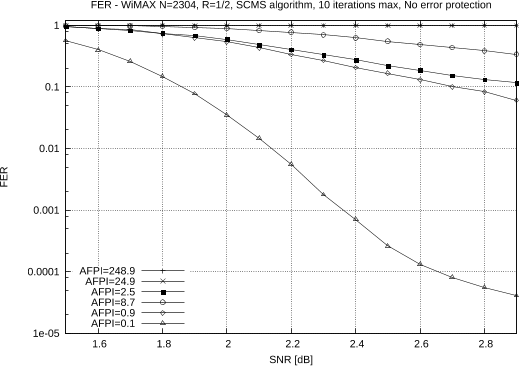Abstract:
Memories are one of the most critical components of many systems: due to exposure to energetic particles, fabrication defects and aging they are subject to various kinds of permanent and transient errors. In this scenario, Unequal error protection (UEP) techniques have been proposed in the past to encode stored information, allowing to detect and possibly recover from errors during load operations, while offering different levels of protection to partitions of codewords according to their importance. Low-density parity-check (LDPC) codes are used in many communication standards to encode the transmitted information: at reception, LDPC decoders heavily rely on memories to store and correct the received information. To ensure efficient and reliable decoding of information, the need to protect the memories used in LDPC decoders is of primary importance. In this paper we present a study on how to efficiently design UEP techniques for LDPC decoder memories. The devised UEP method is divided in four adjustable levels, each one offering a different degree of protection. The full UEP, along with simplified versions, has been implemented within an existing decoder and its area occupation and power consumption evaluated. Comparison with the literature on the subject shows an unmatched level of protection from errors at a small complexity and energy cost.





